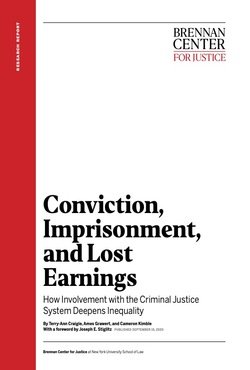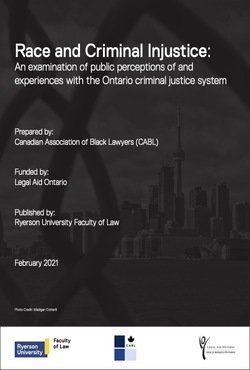By Terry-Ann Craigie, Ames Grawert, and Cameron Kimble
America is approaching a breaking point. For more than four decades, economic inequality has risen inexorably, stunting productivity, weakening our democracy, and leaving tens of millions struggling to get by in the world’s most prosperous country. The crises that have rocked the United States since the spring — the coronavirus pandemic, the resulting mass unemployment, and a nationwide uprising for racial justice — have made the inequities plaguing American society more glaring than ever. This year’s intertwined emergencies have also driven home a reality that some would rather ignore: that the growing gap between rich and poor is a result not just of the market’s invisible hand but of a set of deeply misguided policy choices. Among them, this groundbreaking report reveals, is our entrenched system of mass incarceration. Mass incarceration reflects and exacerbates so many dimensions of this country’s divides — in income and health, in voice and power, in access to justice, and most importantly, over race. The number of people incarcerated in America today is more than four times larger than it was in 1980, when wages began to stagnate and the social safety net began to be rolled back. We’ve long known that people involved in the criminal justice system — a group that’s disproportionately poor and Black — face economic barriers in the form of hiring discrimination and lost job opportunities, among other factors. This report demonstrates that more people than previously believed have been caught up in the system, and it quantifies the enormous financial loss they sustain as a
-
result; those who spend time in prison miss out on more than half the future income they might otherwise have earned.
New York: Brennan Center for Justice, 2020. 44p.



